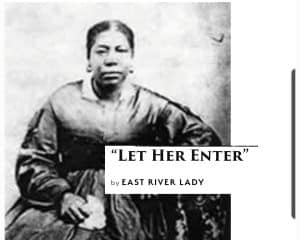
With the recent events in Charlottesville, a church member brought up the issue that racism is still present in the church.
I remember being shocked when I learned as a teenager that blacks didn’t receive the priesthood until 1978. That was only 10 years before I was born! And then, a few years ago, when I read the new essay on Race and the Priesthood that the church published, I learned that blacks couldn’t even receive temple ordinances until 1978. That seemed so wrong and absurd to me. After all, we put so much focus on the temple at church.
When I was young, an adult member of the church once told me that whites and black should not intermarry. He even used scriptures to back up his claims. This made me feel uncomfortable. I thought, “Why should whites and blacks not marry?” I had a good friend who was black, and her mother was black and had married a white man. I didn’t see anything wrong with that.
As a child, I once acquired a board game that taught about famous black people in history. I was super excited to play this game! I asked a church member to play the game with me. He looked at it and said, “But I don’t want to learn about black people. I want to learn about white people.” I felt so confused. I already knew so much about white people, and so I wanted to learn about black people, since I didn’t hear as much about them in my school history classes.
Some of my favorite people I learned about in history at school, were black people. In fact, I would often choose black people for my school assignments. I once did a report on Harriet Tubman. Another time I did a report on Martin Luther King, Jr. I love these people and there’s no reason why we shouldn’t learn about them. One of my favorite things to learn about in school was the Civil Rights Movement.
Some whites may lament that they are persecuted for being white, but when they do this, they downplay the persecutions that blacks face. This is wrong to do. Racism has always been directed at blacks, not whites. Whites don’t experience racism and cannot completely understand what blacks go through. They should stand with blacks and promote equality.
I wanted to end by saying that, as Zandra Vranes said in her video, members of the church should speak up when they hear something racist at church. Racism has been disavowed by the church and goes against today’s Church teachings. I highly recommend watching Zandra’s video. She talks about her experiences with racism in the church. We have so much work to do, but if we work together, we can put an end to racism once and for all.






5 Responses
Last year an old man in our ward (late 80s) managed to insult both African Americans and Native Americans in one testimony. I wanted to get up and say something, but I didn’t know how to do it without feeling like I was publicly shaming him, and couldn’t decide if that was the right thing to do. I ended up figuring that most people would just right his comments off to a senile old guy, but I still didn’t like it, and I’m not sure I made the right call. I wish someone in the bishopric had said something at closing, but they didn’t. Maybe I should have said something to him privately afterwards? I’m interested in how others handle this kind of thing.
This post reminded me of one the most common excuses for racism and sexism in church history: “culture was different back then! Things were different! We don’t understand.” Though I can’t recall a specific moment when a church member seemed overtly racist, these kinds of remarks almost excusing racism and sexism get to me every time. Aren’t racism and sexism always wrong? I understand that cultural upbringing has a lot to do with it. But I also expect more of people than that. Yes, I am far from perfect, but seeing people as equal is just common sense goodness! It really seems like the most fundamental truth.
So even if church members aren’t overtly racist, they can still vote for Trump. Because I guess racism and sexism aren’t political deal breakers for them. Food for thought 🙂
I meant to say that I can’t remember a specific experience I’ve had with an overtly racist church member IN PERSON. Obviously, I’ve heard plenty of anecdotal evidence and the words of leaders. But I haven’t ever dealt with someone who outright said white people were better than people of other races 🙂 (Obviously, that doesn’t mean they don’t exist).
You are not seriously suggesting that the only reason for voting for someone should be their position on the racism and/or sexism scale(s).
There are a lot of things that should go into deciding whether to vote, and whom to vote for. Obviously these should be in the mix, and possibly quite high up. But there are many other factors.
Fortunately I am no a US citizen, and did not have the awful choice that they did. But I would never have voted for Clinton, and actively would not have wanted her as president. So voting for Trump would have been the only move to make – but simply because for me he was the best choice – albeit he shouldn’t have been there, and I hope someone finds a way to oust him.
Andrew R., those would surely be political deal breakers for me 🙂